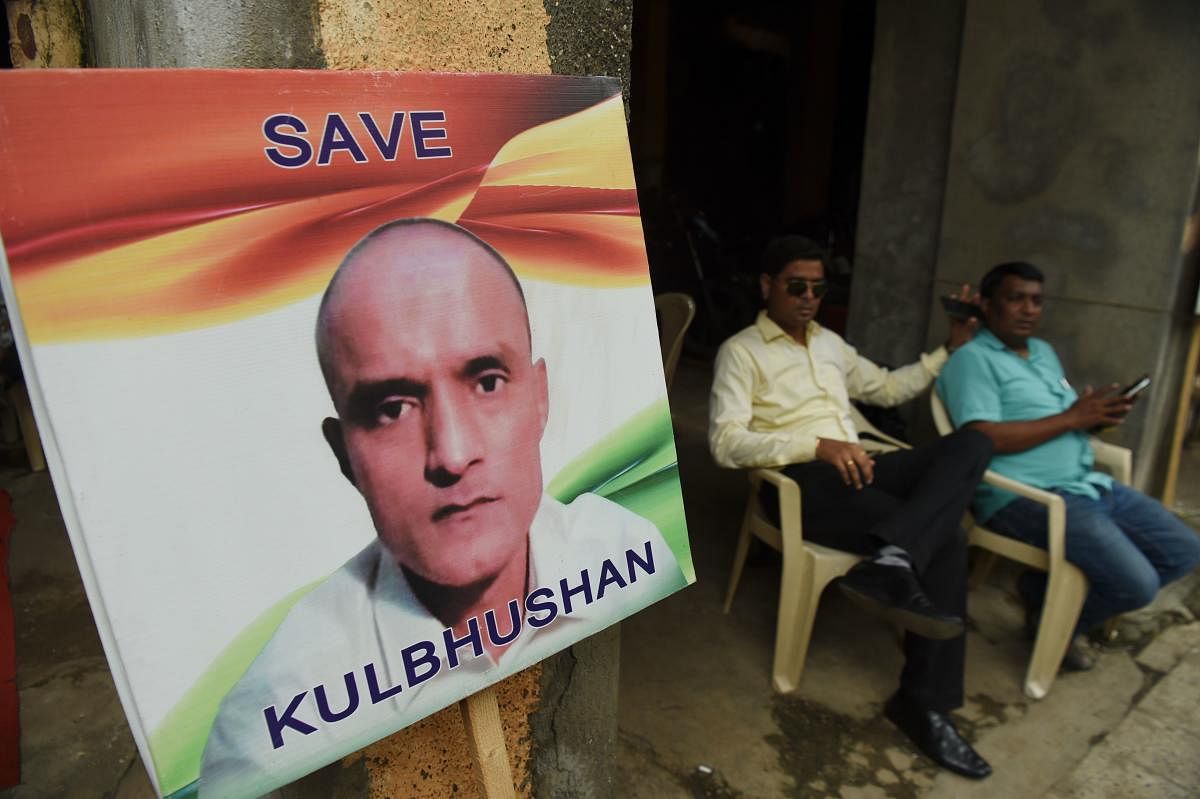
For the first time since his detention in 2016, death-row convict, Kulbhushan Jadhav on Monday met a top Indian diplomat in Pakistan after Islamabad granted consular access to him under the judgement of the International Court of Justice (ICJ).
Following is the timeline of the Jadhav case:
March 3, 2016: Pakistan arrests Kulbhushan Jadhav, a former Indian Navy officer.
March 24, 2016: Pakistani authorities claim Jadhav, "an Indian spy" arrested from the Balochistan province.
March 26, 2016: The Indian government claims there is no proof that Jadhav who owns a cargo business in Iran was arrested in Balochistan as claimed by Pakistan. March 29, 2016: New Delhi seeks from Islamabad consular access to Jadhav. Over the next one year, it made 16 such requests which were denied by Pakistan.
April 10, 2017: A Pakistani army court sentences Jadhav to death "for his involvement in espionage and sabotage activities against Pakistan". India warns Islamabad that it is a case of "premeditated murder".
April 11, 2017: Then External Affairs Minister (EAM) Sushma Swaraj makes a statement in both Houses of Parliament, that India will go "out of way" to ensure justice to Jadhav.
April 14, 2017: India demands from Pakistan a certified copy of the charge-sheet as well as the judgement in the death sentence of Jadhav and seeks consular access to him.
April 20, 2017: India officially seeks from Pakistan details of the trial proceedings against Jadhav as well as the appeal process in the case.
April 27, 2017: Then EAM Swaraj writes to the then Pakistan Foreign Affairs Adviser Sartaj Aziz requesting visa for Jadhav's family to visit him.
May 8, 2017: India approaches the International Court of Justice (ICJ) at Hague against Pakistan military courts decision.
May 9, 2017: The ICJ stays Jadhav's execution.
May 15, 2017: India and Pakistan cross swords at the ICJ over Jadhav's case with New Delhi demanding the immediate suspension of his death sentence.
May 18, 2017: The ICJ tells Pakistan to put his execution on hold pending its final order.
December 26, 2017: Jadhav meets his wife and mother, more than a year after he was arrested by the Pakistan Army and accused of spying.
April 17, 2018: India files 2nd round of written reply in the ICJ in Jadhav's case.
July 17, 2018: Pakistan submits its second counter-memorial in the ICJ on the conviction of Jadhav. August 22, 2018: The ICJ sets February 2019 for hearing Jadhav's case.
November 21, 2018: Then EAM Sushma Swaraj seeks diplomatic access to Jadhav. February, 18, 2019: Four-day hearing in Jadhav's case opens at the ICJ.
February, 19, 2019: India urges the ICJ to annul Jadhav's death sentence by a Pakistani military court and order his immediate release.
February 20, 2019: India questions the functioning of Pakistan's notorious military courts and urged the ICJ to annul Jadhav's death sentence.
February 21, 2019: Pakistan asks the ICJ to "dismiss or declare inadmissible" India's claim for relief to Jadhav.
July 4, 2019: The ICJ announces that it will deliver verdict in the Jadhav case on July 17. July 17, 2019: In a major victory for India, the ICJ rules that Pakistan must review the death sentence for Jadhav and provide him consular access.
July 25, 2019: Pakistan said it was working on modalities to grant consular access to Jadhav.
August 1, 2019: Pakistan Foreign Office says Jadhav will be granted consular access on August 2.
August 2: Meeting between Indian officials and Jadhav did not materialise amid differences between New Delhi and Islamabad on the terms of the consular access to him.
August 29: Foreign Office spokesman Mohammad Faisal said Pakistan and India were in contact on the "issue of granting consular access" to Jadhav.
September 1: Pakistan says it will grant consular access to Jadhav on September 2 "in line with the ICJ judgement".
September 2: India's Deputy High Commissioner in Islamabad Gaurav Ahluwalia gets consular access to Jadhav.